Regarded as one of the top honors in the field of health and medicine, election to the AAP recognizes physician-scientists exhibiting excellence in the pursuit of medical knowledge and advancing basic or translational science discoveries and their use in clinical medicine.
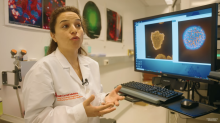
New video: Reinventing Medicine at the EIPM!
May 10, 2022
We hope you enjoy watching our new video and taking a tour of our facilities and laboratories and learning more about how we’re reinventing medicine, with our Director Olivier Elemento, Ph.D. Dr. Laura Martin, Hiranmayi Ravichandran, Ilkay Us, and Alexandros Sigaras, M.S.
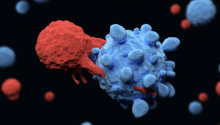
T Cell Behavior Determines Which Tumors Respond to Treatment
May 9, 2022
Immunotherapy unleashes the power of the immune system to fight cancer. However, for some patients, immunotherapy doesn’t work, and new research may help explain why. When immune cells called T lymphocytes infiltrate malignant tumors, the genetic program of those T cells and the developmental path they then follow, may affect their response to immunotherapy and predict overall patient survival, according to a new study by Weill Cornell Medicine investigators. The results overturn the prevailing model of immune responses in melanoma and present different therapeutic approaches.

May 2022 EIPM Director's Memo
May 3, 2022
Dear Members of the Englander Institute,
In the past few months we have taken advantage of annual events like #DoctorsDay, #InternationalWomensDay, and #WomenInScience to celebrate and showcase our staff on social media. April brought another opportunity with #LabWeek! I hope you enjoy following our social media posts about these events as much as I do.

Celebrating DNA Day!
April 26, 2022
DNA Day is celebrated every April 25th, and as our friends at Illumina say “DNA Day isn’t just about celebrating the history of the double helix — it’s our chance to spotlight how the genome is unlocking better human health.”
EIPM Director Dr. Olivier Elemento remarked in the video below, “So sequencing is very important, it allows us to understand how different people are — and what makes every individual unique.”

EIPM Member Inducted into the Assoc. American Physicians
April 11, 2022
Three distinguished Weill Cornell Medicine physician-scientists, Dr. Joseph J. Fins, Dr. Rainu Kaushal and Dr. Shahin Rafii, have been elected to the esteemed Association of American Physicians (AAP).
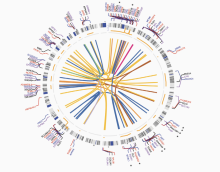
Spring 1Q EIPM Director's Memo
April 11, 2022
Dear Friend of the Englander Institute for Precision Medicine,
Welcome to our first quarterly newsletter of 2022!
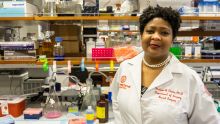
April 2022 EIPM Director's Memo
April 1, 2022
Dear Members of the Englander Institute,
March was another very busy month for us, with important awards and honors for Drs. Anandasabapathy, Ocean, Faltas and Hajirasouliha, well done! We also generated a lot of news media coverage, participated in important events, and published impactful research.
We celebrated International Women’s Day on March 8th by paying tribute on our social media channels to some of the women who motivate and inspire us.
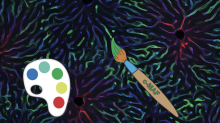
Specialized Liver Blood Vessel Identity Factor Required for Regeneration
March 31, 2022
Researchers at Weill Cornell Medicine have identified a key protein that induces the program to build specialized liver blood vessels. The discovery could lead to engineered replacement hepatic tissue to treat common liver diseases.

Novel Technique Provides Insights into Lung Pathology in COVID-19
March 11, 2022
Investigators at Weill Cornell Medicine and NewYork-Presbyterian have used advanced technology and analytics to map, at single-cell resolution, the cellular landscape of diseased lung tissue in severe COVID-19 and other infectious lung diseases. In the study, published in the May 2021 issue of Nature, the researchers imaged autopsied lung tissue in a way that simultaneously highlighted dozens of molecular markers on cells.
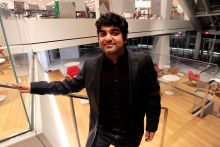
EIPM Researcher Wins Starr Cancer Consortium Funding
March 10, 2022
Two multi-institutional teams led by Weill Cornell Medicine scientists have been awarded grant support from the Starr Cancer Consortium. Both grants will fund work applying new technologies to develop more detailed knowledge of tumor biology, with one team focusing on Hodgkin lymphoma and the other on the purity of tumor samples on pathology slides.

